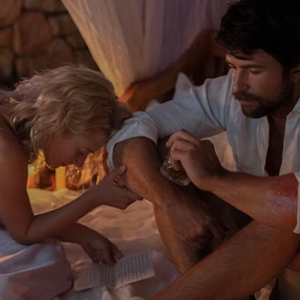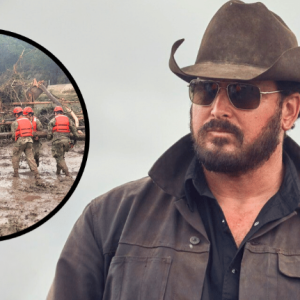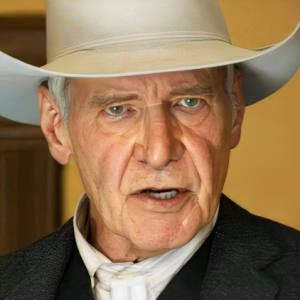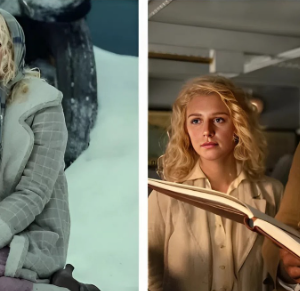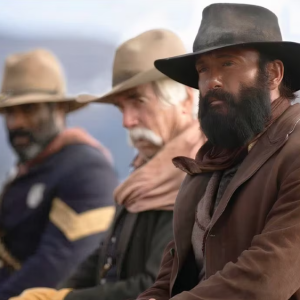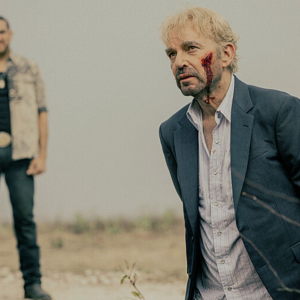Kevin Costner’s portrayal of John Dutton in Yellowstone serves as the unwavering anchor for this gripping saga, a narrative deeply embedded in themes of family loyalty, profound ethical dilemmas, and the immense weight of legacy. More than just a character, Dutton embodies the soul of a modern-day Western epic, brought to life through the audacious vision of creator Taylor Sheridan.
In the vast, wild, and often unforgiving expanse of Yellowstone, where a man’s word can be his undoing and loyalty is tested by both the rugged land and the complex bonds of blood, Taylor Sheridan did something profoundly ambitious. He crafted a character that transcended the typical protagonist, evolving into a symbolic figure steeped in moral ambiguity. At the heart of this gritty, sprawling drama is Kevin Costner, who is not merely an actor inhabiting a role but the very embodiment of John Dutton’s spirit – a spirit intertwined with the land he fiercely protects.
There is an undeniable magnetism to Costner. Perhaps it’s his inherent cowboy charm, the palpable gravitas infused into every line he delivers, or simply the fact that he seems to be the walking embodiment of a certain American ideal, rooted in resilience and a rugged individualism. Yet, Sheridan perceived something far deeper in him: a perfect vessel to explore the intricate nuances of power, the complexities of loyalty, and the sheer will required for survival in a rapidly changing world. Costner’s storied career, replete with iconic roles that often showcased men of conviction and quiet strength, made him uniquely suited to embody a patriarch burdened by a kingdom.
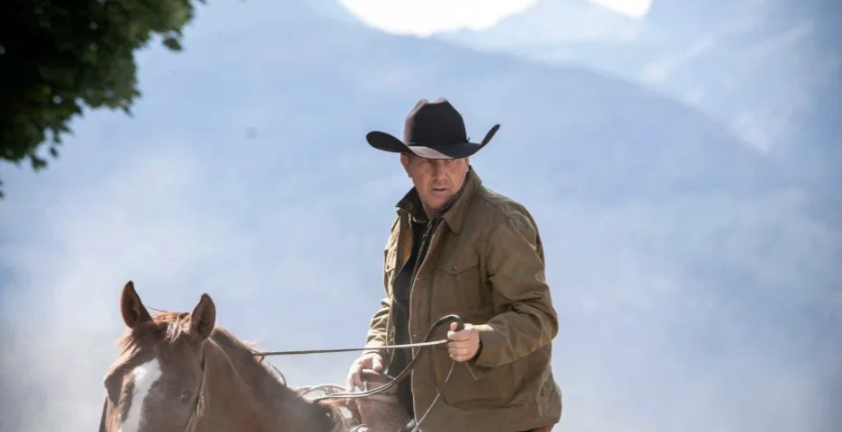
When Taylor Sheridan first conceptualized Yellowstone, his intention was clear: this would not be just another television show about a ranch. He explicitly stated his desire to treat it “like a movie.” From the meticulously chosen aspect ratios to the specific lenses employed, Sheridan approached Yellowstone as a grand cinematic experience. His ambition was to tell a sweeping, sprawling tale set against the breathtaking backdrop of the modern American West, where power, an enduring legacy, and the very ground beneath one’s feet are all inextricably linked in a perpetual struggle.
For such an ambitious undertaking, Sheridan required an actor who could not only anchor this epic saga but also infuse profound depth into a character who defied easy categorization – neither wholly good nor entirely bad. Kevin Costner, with his formidable presence and vast experience, was the perfect choice to breathe life into John Dutton. Sheridan’s writing and direction relied heavily on Costner’s innate gravitas, knowing full well that he could convey the necessary complexity and internal conflict. “Kevin’s one of the biggest movie stars of the past 40 years,” Sheridan remarked, highlighting the unparalleled tool he had in his creative arsenal. “And so when you have that kind of tool in your toolbox, you can write him into some really conflicting situations.” This recognition underscored the deliberate crafting of Dutton as a character who would face profound moral quandaries, demanding an actor who could navigate such depths with credibility.
Sheridan’s detailed vision for Dutton reveals the meticulous care with which the character was constructed. He explained his core concept: “It was the notion of a man who had inherited the seventh generation of this massive cattle ranch and reaching a place where he was aware of his own mortality, and who could he trust to shepherd this ranch into the next generation?” This fundamental question drives much of Dutton’s actions and the intricate plotlines of Yellowstone. He isn’t merely fighting for land ownership; he is fighting for the very future of his family, for the preservation of an ancestral legacy that spans generations. Costner’s portrayal brings every ounce of that immense weight to the screen, allowing viewers to feel the burden and responsibility resting on Dutton’s shoulders.
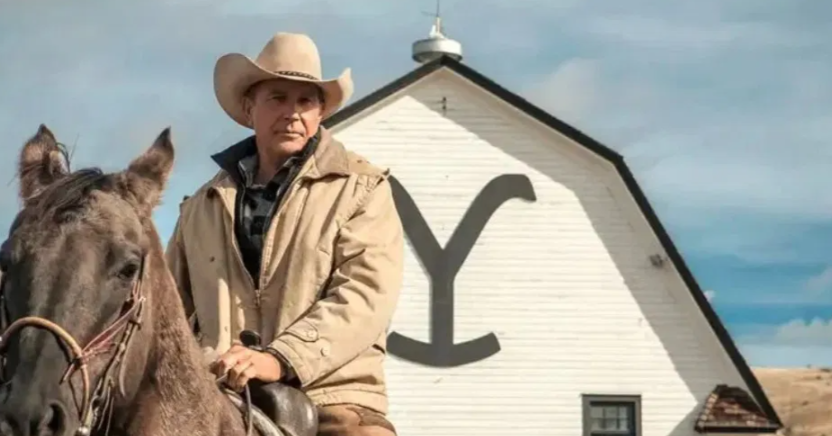
The analogy of the “kingdom” is central to understanding John Dutton’s character. As Sheridan shared, “And when you have a piece of land as big as this is, it’s almost a kingdom. And so does that make you a king? Kings, they don’t employ morality when they’re making decisions. Their job is to preserve the kingdom.” This philosophy profoundly shapes Dutton’s choices. He is a man willing to make morally questionable decisions, to cross ethical lines, and to employ ruthless tactics, all in the service of protecting what he views as his sovereign domain and the birthright of his family. He is not presented as a saint; instead, he is a man driven by a singular purpose, one he believes in implicitly, even when the world around him challenges his methods or his very existence. This unwavering commitment, often at great personal and familial cost, is what makes Dutton so compelling and, at times, polarizing.
What Taylor Sheridan truly excels at, however, is delving into the profound complexities of morality. For him, storytelling is not about creating simplistic heroes or one-dimensional villains. Instead, he offers an ensemble of characters, each riddled with compelling contradictions and internal struggles. John Dutton epitomizes this approach. He is a man who champions family loyalty above all else, yet he is frequently willing to sacrifice everything – including his relationships with his own children, Beth, Jamie, and Kayce – for the survival of his cherished ranch. His relationships are often strained, particularly with Jamie, whose very existence as a Dutton is questioned, or Beth, whose unwavering loyalty is constantly tested by her father’s demands and decisions. Even with Kayce, who strives for a more conventional life, John’s gravitational pull on the ranch’s future is inescapable. In the same conversation, Sheridan emphasized his artistic philosophy: “I’ve always liked the notion of playing with who is a protagonist, and allowing our heroes to be flawed, and really question what they’re doing morally, ethically, and keep them really human.”
Yellowstone thus presents a raw and realistic view of family dynamics, often messy and fraught with tension, set against sweeping power struggles and profound moral ambiguities. John Dutton is the quintessential embodiment of this moral gray area. Kevin Costner himself described Dutton as a man who’s been “pretty much a black-and-white guy for a long, long time.” But the relentless pressures of the modern world, with its ever-encroaching development, environmental challenges, and the historical claims of Native American communities, force him to venture deeply into shades of gray, compelling him to adapt or perish.

The conflicts Dutton faces are multi-faceted: external threats from land developers, corporate greed, and even state politics are constantly vying for pieces of his property. Internally, the struggles for succession, the lingering resentments among his children, and his own aging body add layers of vulnerability to his otherwise iron-willed persona. The series masterfully blends traditional Western tropes – cattle drives, open landscapes, and a code of honor – with contemporary issues like land rights, political corruption, and the erosion of traditional values. This fusion elevates Yellowstone beyond a mere genre show, transforming it into a poignant commentary on American identity and the enduring allure and burden of the frontier spirit.
Ultimately, Yellowstone is far more than a show about land, cattle, or power struggles; it is a deep dive into the American psyche, where the question of what it truly means to fight for something you love is constantly debated and tested. Sheridan’s expansive vision for the series allows its characters, particularly John Dutton, to explore the profound complexities of loyalty, the multifaceted nature of family bonds, and the ever-evolving concept of identity in a world that threatens to strip away everything familiar. As Sheridan poignantly stated, encapsulating the core of the show’s emotional resonance: “You can love this place and still question things that take place here and scream about it, and I think that we’re supposed to. And so I think that Kevin’s work has always done that. I try to do that. And it’s screaming with love.”
Costner’s commanding portrayal of John Dutton, under Sheridan’s meticulous direction, became the undeniable beating heart of Yellowstone. It is a series that has profoundly redefined the portrayal of the modern-day cowboy and patriarch, making him a figure both aspirational and deeply flawed. And that, in essence, is the true power of Yellowstone: its remarkable ability to compel viewers to question, to challenge their preconceived notions of right and wrong, and to ultimately find a profound, often flawed, humanity in every character they encounter within this unyielding kingdom.
